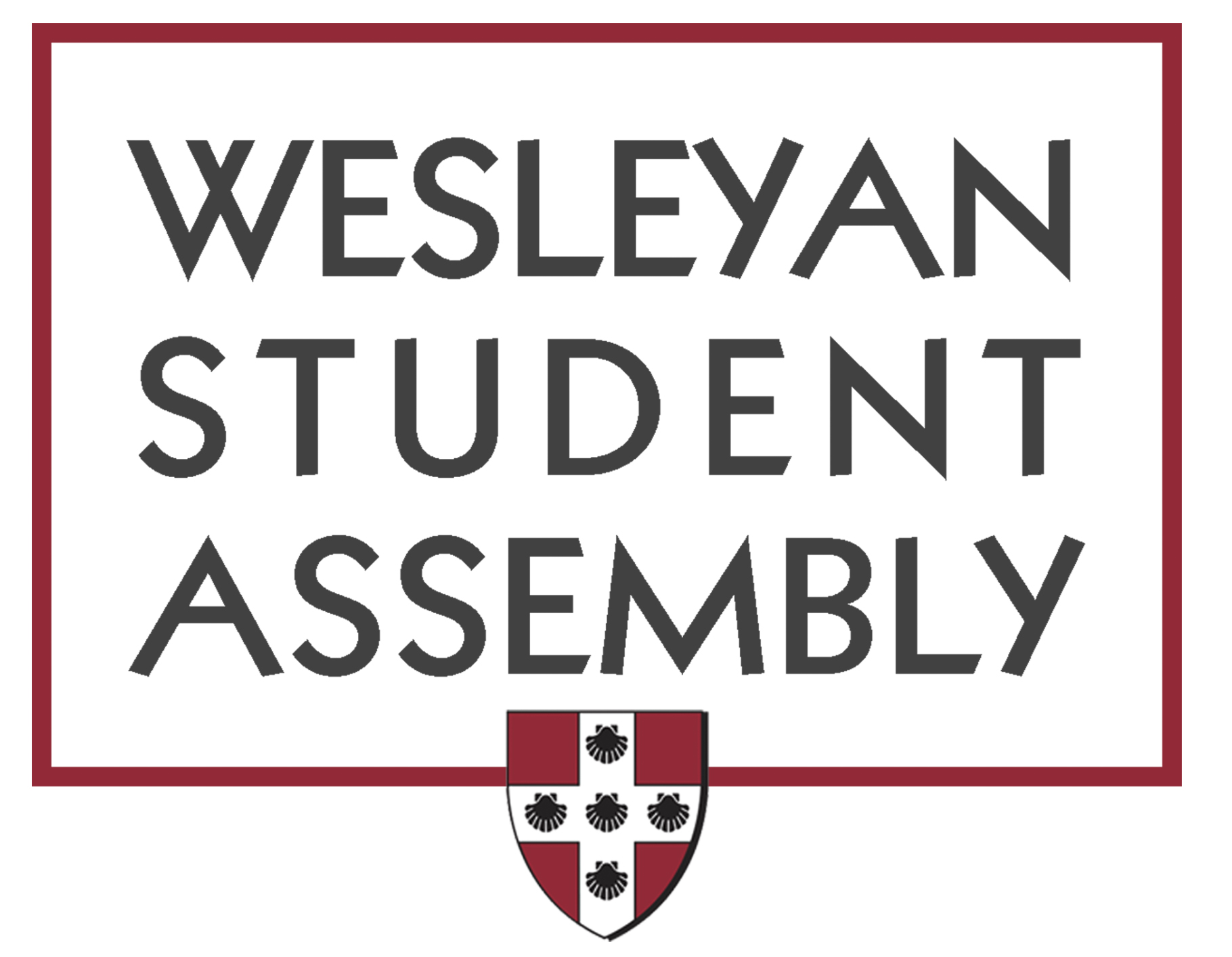
c/o Wesleyan Student Assembly
A Wesleyan Student Assembly (WSA) resolution to clarify the Student Budget Committee’s (SBC) funding criteria and amend its networking bylaw passed 30-0 with one abstention.
The resolution, a joint effort by members of the 2017-2018 SBC and presented in October, clarifies to student groups requesting funding from the SBC what the committee is willing to fund so groups can better understand how their requests will be received and what criteria the SBC uses to make their decisions.
“When I was in the SBC, a big issue I noticed was that people didn’t know what the SBC funded,” WSA Community Committee Chair Aditi Shenoy ’20 said. “They knew what it didn’t fund, but they didn’t know what it did fund because there’s no specific thing talking about what they do fund and because of that lack of that institutional mission and institutional funding guidelines. The SBC itself changes so much from year to year about what criteria it uses…that people were just really confused.”
The resolution includes the addition of an overall mission statement about how the SBC wishes to go about funding student groups. Because the SBC allocates money pooled from the Student Activity Fee, which all students pay, the resolution aims to focus on funding events that as many students as possible have access to.
“[The SBC’s mission is to] use funding to support an inclusive, collaborative, vibrant, active, extracurricular community on campus,” the mission statement reads. “Preference is given to groups that contribute to campus life by hosting events or meetings on campus rather than off campus.”
In addition to a mission statement, the resolution also introduces a list of criteria that the SBC will use to determine how to fund groups. These new criteria will be combined with a consideration of the details of individuals’ requests when making funding decisions.
“Based on this vision, the SBC considers, but is not limited to: number of participants and student demand, cost per participant in relation to the Student Activities Fee, amount of funding previously allocated within the same academic year, accessibility for new members, beginners, and underclassmen, necessity for group to function, degree of impact the event or club has on the campus community, whether the club or event is free, open, and inclusive, whether the event promotes historically underprivileged communities, relevance of event or activity to the student group’s mission, the student group’s historical responsibility in managing funding,” the resolution reads.
The other main change the resolution makes is to its previously unclear bylaw about how the SBC will handle funding requests for conferences and other off-campus events.
“The SBC will not fund attendance at conferences with the sole purpose of benefiting the individual attendees, as opposed to bringing material benefits or important skills and practices back to the broader Wesleyan community,” the previous bylaw read.
The resolution strikes the old bylaw and adds two new bylaws clarifying the SBC’s stance on conferences and off-campus events.
“The SBC will not fund attendance at events that are primarily career-focused; The SBC is disinclined to fund attendance at off-campus events, especially conferences,” the new bylaws read.
These new bylaws keep in line with the SBC’s overall mission to fund events and clubs that contribute to campus life. Depending on the request, the SBC may fund some of it but hopes to encourage student groups to request conference funding from sources such as the Patricelli Center, Career Center, Resource Center, and academic departments.
In addition to aligning with the SBC’s mission statement, these other sources of funding have the infrastructure and manpower that the SBC lacks to ensure student groups get the most out of conferences and bring what they learned back to campus. For example, the Patricelli Center requires students to meet with an advisor and write a public post on their ENGAGE blog reflecting on the conference they attended and giving advice to students curious about attending in the future.
This set of bylaws also aims to clarify how the SBC has managed—and will continue to manage—sports team funding.
“With regard to sports teams participating in off-campus tournaments, the SBC understands that there is also a major on-campus component to training for such competitions, so sports groups have always received a fair amount of funding,” Shenoy wrote in an email to The Argus. “However the SBC has increasingly been asking teams to pay dues to help cover off-campus focused activities for a few years now.”
Jocelyn Maeyama can be reached at jmaeyama@wesleyan.edu.